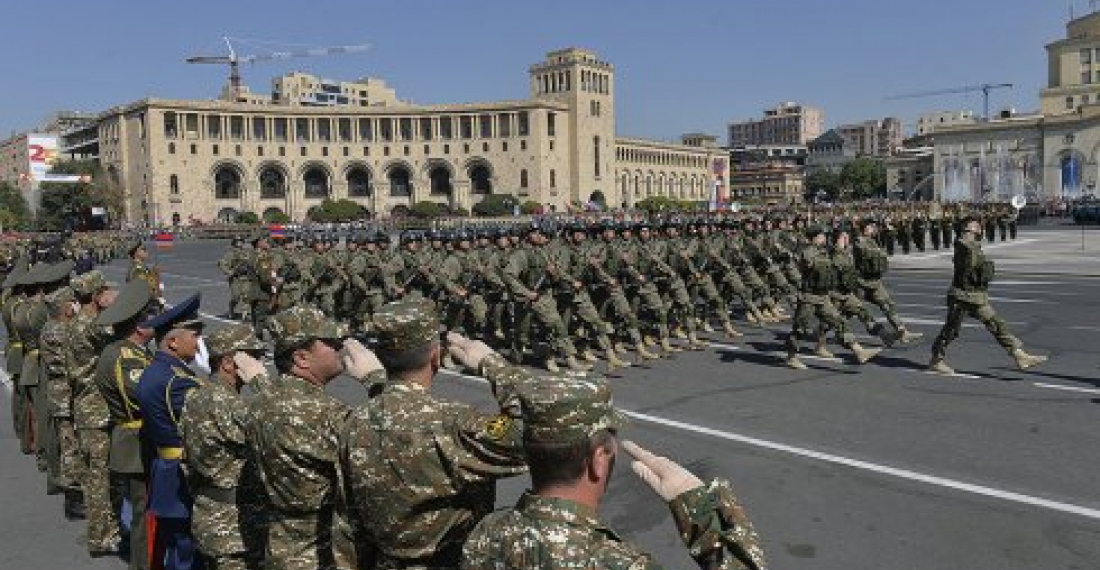Armenia is to spend 15.4% of its state budget on defence in 2017
The Armenian government has put forward the proposed state budget for 2017. The budget will amount to 1.210 trillion AMD (US$2.551 billion), of which 15.4% will go to defence.
Hetq.am reports that estimated expenditures will total 1.360 trillion AMD, leaving a deficit of some 150.1 billion AMD (US$3.162 million).
According to Hetq.am the allocations under different budget lines are proposed to be as follows:
Social Protection: 408.9 billion AMD ($862 million)
General Public Services: 276.5 billion AMD ($583 million)
Defence: 209.8 billion AMD ($442.8 million)
Education 128.7 billion AMD ($271.3 million)
Public Order, Safety & Judicial Operations: 101.7 billion AMD ($214.4 million)
Economic Relations: 92.8 billion AMD ($195.6 million)
Healthcare: 85.7 billion AMD ($180.7 million)
Relaxation, Culture & Religion: 26 billion AMD ($54.8 million)
(US$1 = 474.34 AMD)
Commonspace.eu political editor said in a comment that Armenia is struggling to modernise its armed forces and defence capability whilst not excessively burdening its overall budget. Despite this Armenia spends more than twice the amount on defence than it spends on healthcare.
The allocation for defence projected for next year remains stable and not very different from what it is for 2016. This picture is only partially correct. Armenia receives some military supplies from Russia in the framework of its alliance within the Collective Security Treaty Organisation (CSTO). Armenia has also taken a loan from Russia to purchase extraordinary items such as the Iskander missile system on display in Yerevan during a military parade last month. Russia sells Armenia armaments at the same price that its military industrial complex charge the Russian military. This notwthstanding Azerbaijan continues to outspend Armenia on its expenditure on defence in very significant terms. Azerbaijan buys most of its arms from Russia and Israel.
source: commonspace.eu with hetq.am
photo: Armenian soldiers on parade inn Yerevan in September 2016 (archive picture)







